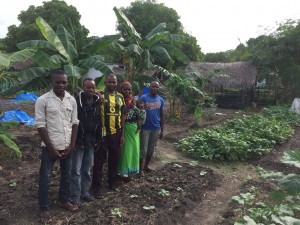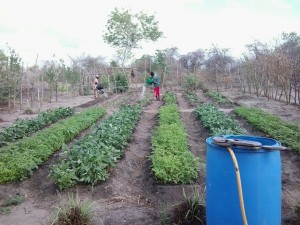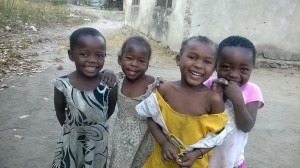Kikundi Cha Mafanikio Garden Shop, Tanzania
partners with families to help them improve water supply, start organic vegetable gardens, and qualify for microloans for small business and building.
Stories Donation Opportunities
Partner Since: 2013
Public Water Points Implemented: 9
Family Gardens Built: 38
Family Loans Funded: 17
Partner Schools: 2
Programs
Water Access
Residents of Kindwitwi used to fetch water from the Rufiji River. The river is a 15 minute walk from the village and is home to crocodiles, snakes, and other animals that made collecting water a life-threatening chore. KCM has facilitated the installation of nine public water distribution points in Kindwitwi. These water points make small-scale irrigation possible and also reduce the cost for private families to get private water connections at their homes.
Organic Vegetable Gardening
KCM is working with families to build FAITH Organic Vegetable Gardens throughout Kindwitwi. The team builds the gardens alongside families and contributes start-up inputs like compost, foliar sprays, and seedlings. KCM also provides mentor visits to families to encourage best-practices. As families become self-reliant KCM reduces their assistance to focus on helping new families start.
Microloan
KCM works closely with another community based organization in Kindwitwi, the Kindwitwi Development Association, to help families qualify for small business and home improvement loans. KCM works with Better Lives and local families to create viable business plans that produce value for the community. When a family has qualified for a loan and proposed a viable business plan, the plan is brought to the Kindwitwi Development Association for funding.
Community

Kindwitwi is a small village about 200 km south of Tanzania’s capital, Dar es Salaam. People have only inhabited the area since the 1950’s, when the government of Tanzania sent leprosy patients from across Tanzania to live in Kindwitwi for quarantine. Today’s residents are the descendants of those patients.
Most residents depend on harvests from one acre plots of land. The FAITH Gardening program teaches families how to increase their soil’s long-term fertility. Water connections reduce the cost of collecting water and enable the FAITH Garden program by making irrigation possible. Additionally, microloans have helped build a more diverse local economy and small business owners are providing valuable services to the community.
